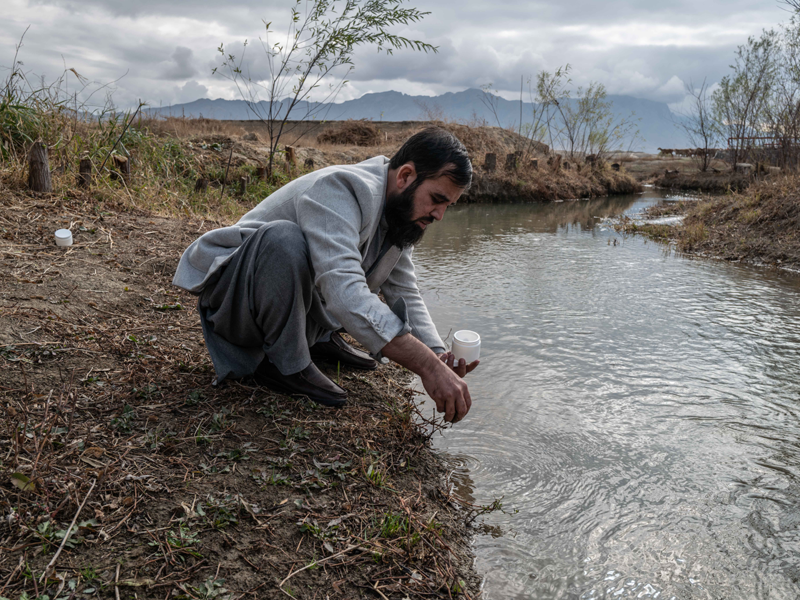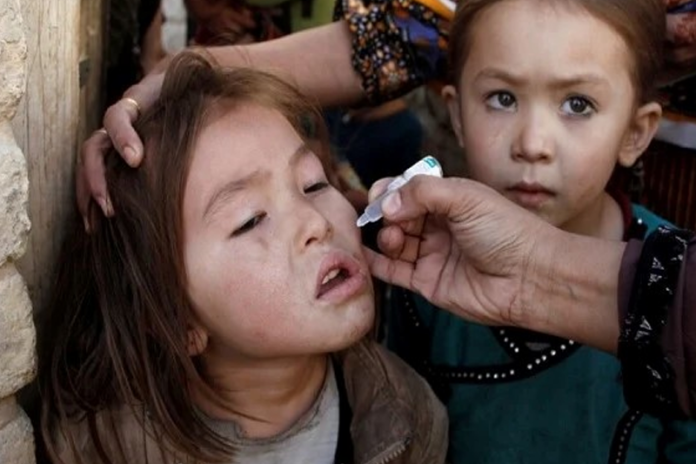Cold weather, contaminated water taking toll on lives

- 210
- 0
According to a media report, 172 people have died of pneumonia so far in Punjab during the current winter season. 1155 cases were reported in Lahore, in which the number of dead people is 43.
The number of people affected by pneumonia in the whole province is said to be 7,743, while 10 more people died in just 24 hours. This is very worrying. It is a growing situation.
Not only Punjab, all regions of the country are in the grip of drought and severe cold. Children, old and young are all affected by not taking precautionary measures. Negligence in prevention of cold is the cause of pneumonia.
It is necessary to take care in the light of the instructions of medical experts at both individual and collective levels. However, there is no awareness campaign by the health department in any of the provinces. General elections are coming up, lest the disease escalates and hampers administrative affairs.
Realizing and taking necessary steps is the indispensable need of the hour. According to medical experts, pneumonia is caused by both viruses and bacteria. It is not contagious in itself, but its germs can infect another person. Usually, it starts with a cold or influenza, followed by carelessness.
The disease settles in the lungs, difficulty in breathing and an increase in body temperature are common symptoms. In such a situation, although people follow the tips or measures given by each other, it is better that the health department is active at the national level and takes all necessary steps as per the instructions of the medical experts.
There has been an alarming rise in cases of water-borne diseases across the country. Though the diseases are spreading all over the country but is mainly the big cities and urban cities including Karachi where the water borne and skin diseases have become rampant after rains and one way to keep these diseases at bay is preventive measures.
The main disease in the mega polis of gastroenteritis and skin disease but due to DIRT AND sewerage water, the danger of dengue is also looming large.
The public sector hospitals have reported 40 per cent increase in number of patients suffering from water-borne disease and few cases of typhoid have also been registered at the country, i.e., Jinnah Post Graduate Medical Centre. Few cases of the multidrug resistance typhoid are also back in some parts of the country, mainly the Balochistan province.
These cases mostly involve the young ones, who play in accumulated rain water and also consume the same, exposing them to the danger of multidrug resistant (MDR) typhoid.
As the treatment for MDR is extensive, the best way is to prevent through preemptive steps and that is to avoid consuming and using contaminated water for cleaning purposes.
Medical experts at Civil Hospital Karachi said that they are receiving daily an increased number of patients suffering from gastroenteritis but the cases of dengue are also reported but they are comparatively low in number.
However, health experts fear further rise in such disease as the quality of water provided the citizens after rains is extremely poor and not fit for human consumptions.
The irony is that people in our country follow preventive rules in totally.
For instance, they will boil water for drinking purpose but will wash hand, mouth, eyes, face, food items like fruits and vegetables with contaminated water.
That's why the diseases cannot be controlled. They advised the citizens to ensure drinking only boiled water; clean accumulated rain water from around the vicinities of their houses.
If it is out of their control, then spray kerosene oil on it, and also ensure to use clean water for brushing their teeth, for cooking food, for washing fruits, utensils, vegetables. Children are particularly vulnerable to water borne disease so they should be made to wash their hands with clean water; and also stop them from playing in accumulated rain water. Though the city dwellers get contaminated water due to dilapidated civic structures in big urban centres, but after rains, the quality becomes extremely poor and cause instant diseases. As a matter of fact, this rains were both a blessing and a curse. While they proved to be extremely beneficial to crops and for feeding our rivers and dams which had become dried since April this year, they also proved detrimental to the civic facilities and resulted in broken roads, overflowing of gutters, ditches fill of muddy and filthy water and sewerage lines which are already burden and could not sustain the relentless rains which were abnormal in nature. Meanwhile, the threat of spread of Naegleria Fowleri has also increased. The disease is already making rounds in the City of Karachi since January this year and two more deaths have been reported in the city due to the Naegleria Fowleri, the brain-eating amoeba during the current month in Karachi. This is also attributed to the exposure to contaminated water. It ought to be mentioned with concern that the MET office has predicted further heavy rain during the second spell of monsoon which may start in mid-August and will last till September, so it becomes extremely important to keep the diseases in control during this entire period otherwise a health emergency can be created. Health experts have also called upon the government authorities to freshly assess and ensure the process of chlorination and the required level of chlorine at all key and major water reservoirs supplying water to the megapolis as par standards recommended by the WHO. In this connection, the complete draining out of rain water is vital and also the repair of damaged water supply lines and broken gutters in the city. There is also an urgent need for fumigation drives in the city to check the mosquito menace which are spreading Malaria and dengue in the city. The repair work of civic amenities and supply of clean water should be among the plans aimed at preventive health strategies of both the Federal and the provincial governments in the entire country.
Published in The Daily National Courier, January, 25 2024
Like Business on Facebook, follow @DailyNCourier on Twitter to stay informed and join in the conversation.

















































